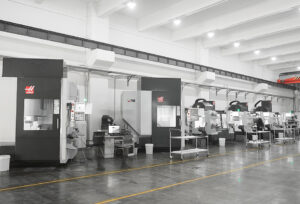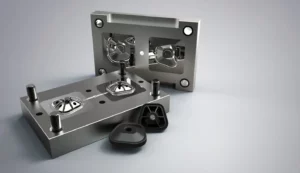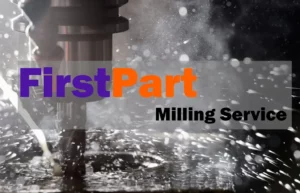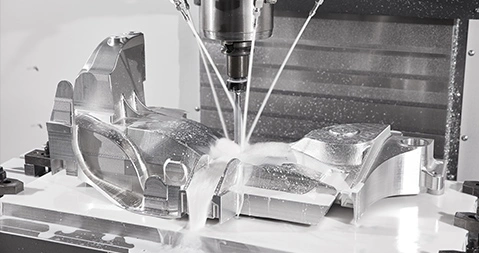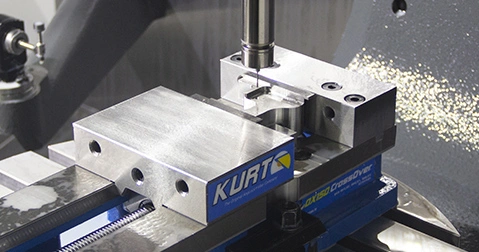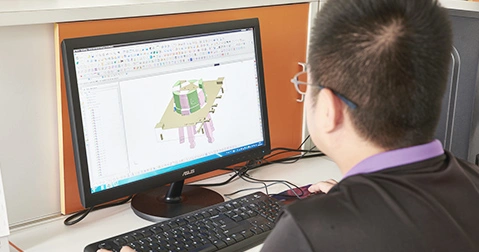One of the pillars of success in machining operations involves using the right tool for the right tasks. In CNC machining, where projects vary in size, geometry and finish, it is ideal to have an idea of the different types, classes and variety of tools for every workshop. Depending on what you’re trying to achieve with your project, you may require tools for preparing, roughing and finishing your part.
In today’s article, we shall look at 3 key categories of machine tools. These categories include precision measuring tools, power machining tools and hand machining tools. Each of these categories contains essential tools that can be found in any tool store. Some of them may even be bundled in a toolbox that you can buy comfortably for your workshop. Let’s get started with the first category – Measuring tools.
1. Precision Measuring Tools
As the name implies, precision measuring tools refer to a set of hand tools that are used to ascertain the geometric accuracy, conformance and limit levels of a finished part or raw material stock. These measurement tools are important for ascertaining accuracy of dimensions, and to gauge whether a part has been made to specified dimensions, or whether they have deviated from customer or project specifications.
Here are our most essential precision measuring tools we recommend for every CNC machine shop:
i. Micrometer screw gauge
The micrometer screw gauge measures everything from length to thickness and diameters of small objects. It is a common apparatus in the machine shop that helps machinists to make extraordinarily accurate measurements to the one-thousandth of an inch. It is particularly deployed for parts that demand a tight level of tolerance, where even the smallest gap between components in a part may affect functionality.
Screw gauges are available in analog (dials and rulers) and digital scales, however, we strongly recommend the digital versions to get the most accurate readings for microscopic measurements.

ii. Vernier calipers
Calipers or Vernier calipers are popular measuring tools used to estimate the distance between opposite sides of an object, the depth, thickness, diameter and length of an object. It measures the inner and outer width of an object as well as the deepness of holes that may feature in a part to a high degree of accuracy.
There are different types of calipers. Some have analog scales like dials and rulers, while others feature a digital display.
Calipers must be properly cleaned and stored, as poor maintenance can and will affect their precision and calibrations.

iii. Square sets
Also called combination squares, square sets are excellent multipurpose measuring equipment that help for checks with lengths and angles (especially 45 and 90-degree angle integrity). They are used in machinist workshops to center parts or measure the center of circular objects, checking squares, find depths and quantify simple distances. They may also be used to determine the level of a plumb.

iv. Dial Indicators
Dial indicators are precision measurement instruments that quantify the alignment of a workpiece to a machine component. They are used along EDMs, grinding, milling and lathe machines to measure the general deviation of the object from the set standard or specifications, or to calibrate the machine itself prior to a production run.
Dial indicators are also used to check for run-outs, deck clearances, crankshaft thrust, straightness and other micro measurements that may affect performance of crucial engineering components. They are called dial indicators for their clock-style faces that consists of numbers arranged clockwise which the dial points to during a reading.

2. Power machining tools
Power machining tools are essential tools that are operated with electrical or battery power. These tools are mechanical, consisting of moving parts that cannot be controlled manually. Below are our top picks of power tools required in your machining workshop:
i. Grinding wheel
Grinding wheels are must-have consumables for machinist shops as they help to complete abrasive and other grinding actions. They contain abrasive pieces of fiberglass or other grains bonded to a wheel shape, and act as grinding tools to remove excess or undesired materials from workpieces to finish and refine the part. The 3 elements of the grinding wheel are the grain, bond and pore.

ii. Deburring tools
Burrs are concentrated parts of stock metal or workpieces residing as remnants in holes, corners and slots. They arise as a result of the cutting action of the tool on the workpiece. Because CNC operations include cutting and milling, deburring tools are important power tools that help to remove the burrs along the inner and outer parts, corners, hole edges and narrow slots in machined parts. Deburring tools can be used for roughing out sharp edges, smooth parting lines, jagged edges and other protrusions on the surface of the object.

iii. Belt Sanders
Belt sanders are another multipurpose tool used for sanding, levelling, freehand roughing, trimming, sharpening and shaping operations in the CNC workshop. While their primary option is sanding and smoothing, belt sanders may be used to sharpen other tools like chisels that do not particularly need a perfectly strength edge.

3. Hand machining tools
Hand machining tools are support tools that are used with the machines or in direct contact with the workpiece in everyday machining. They are not mechanical, and must be operated or applied manually with your hands. Below are the most essential hand machining tools to own in your workshop:
i. Allen Key Set
Also referred to as Allen wrench set, these essential tools will help you drive-in or loosen hexagonal sockets and nuts in many machine shops. Allen keys come in handy when machinists need to quickly tend to small issues that may arise with CNC machines, or perform routine maintenance operations.

ii. Center punch and hammer
While the application of center punches and hammers are not exclusive to each other, this pair of tools are used by machinists to tap workpieces, machine parts and center punches to mark positions for certain machining operations on the workpiece.

iii. Adjustable spanner
Adjustable spanners or crescent wrench are spanners with a movable jaw and an open end. The movable jaws are designed so that the spanner can cater for a varied number of sizes, while the open end tends to a predefined nut size. This option is dual-purposed, and is therefore better than conventional spanners.

FirstPart CNC Machining in China
FirstPart is one of China’s leading manufacturing hub for Additive, CNC and Conventional manufacturing techniques. We boast of excellent in-house capacity, labor force and logistics while delivering exceptional value for money.
Our array of services includes CNC machining, CNC turning, CNC milling, 3D printing, Rapid Tooling, Die casting, Rapid prototyping, Plastic Injection Molding, Urethane Casting, Aluminum Extrusion, Post-machining/Finishing services and much more.
We offer product tooling, mass production, bridge tooling and low-volume prototyping/manufacturing with very flexible minimum order quantities (1 to 100,000). Our services are online, scalable and innovative, with a team of engineers and design experts available to support you through your entire product development cycle.


